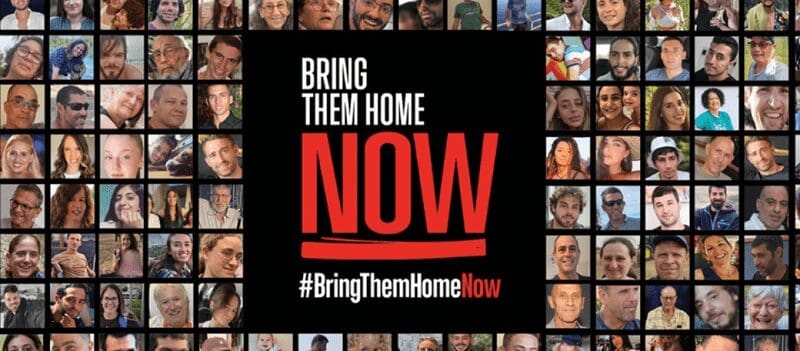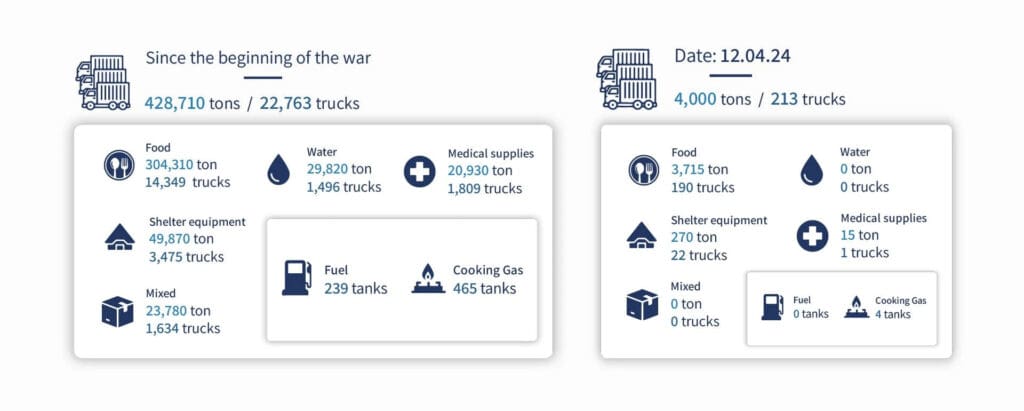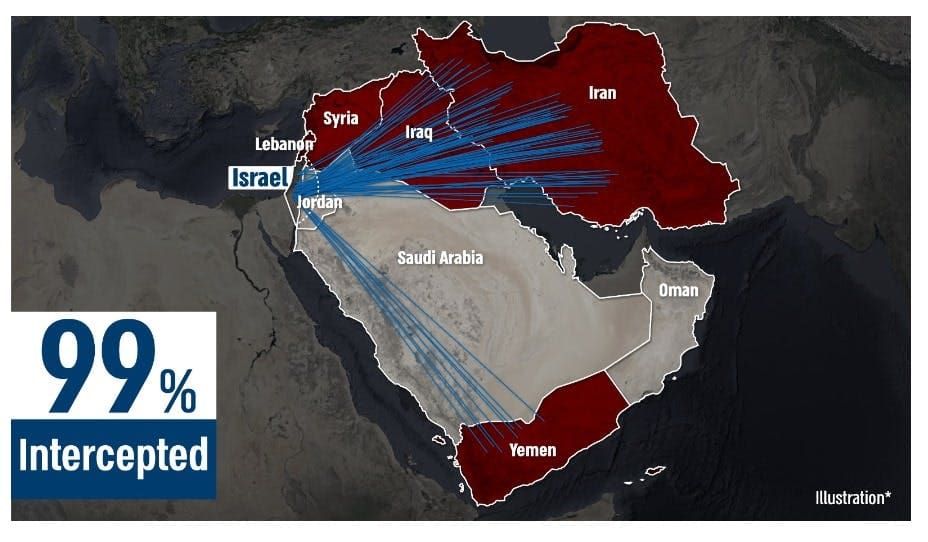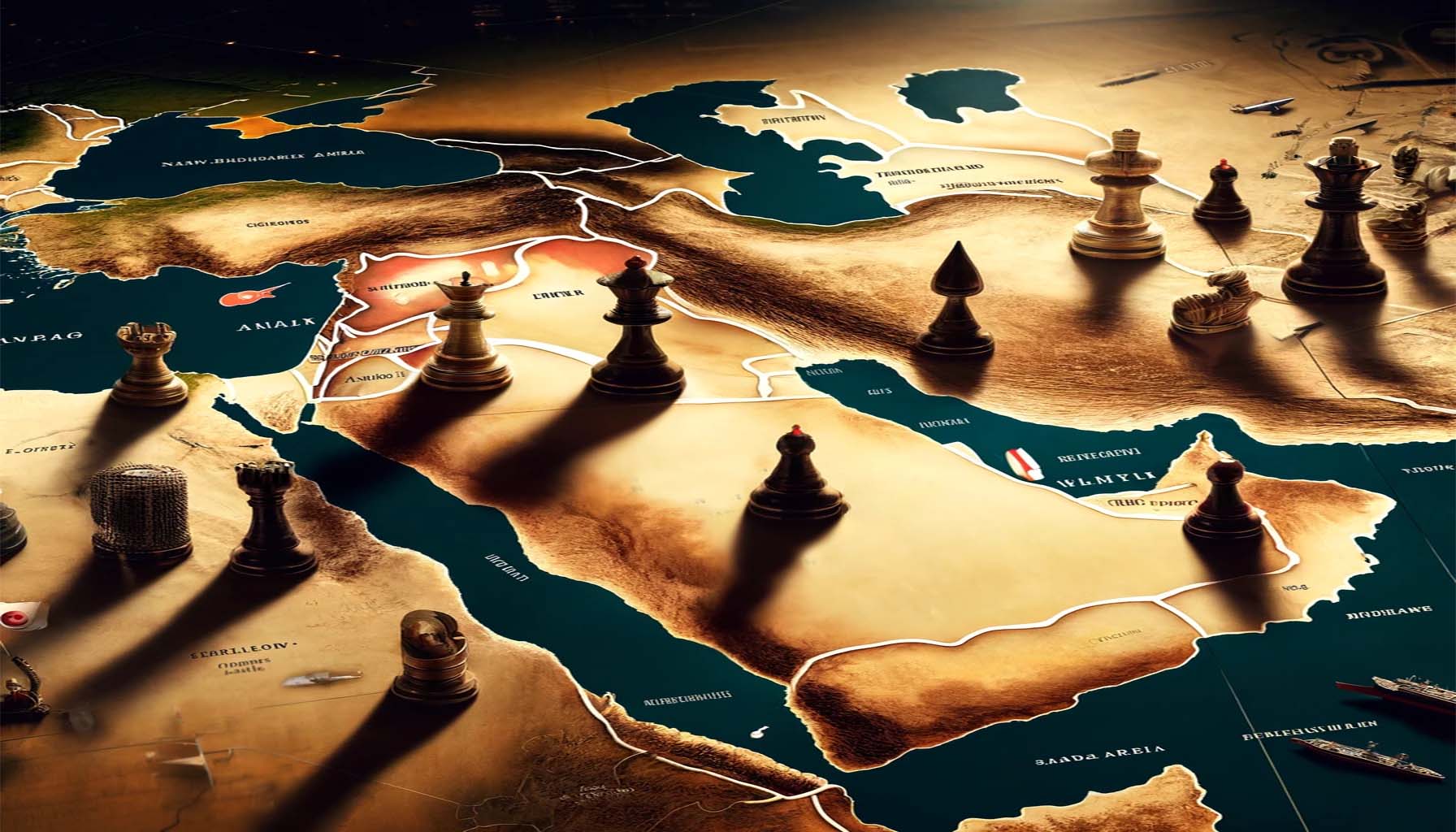I am proud and honored to welcome you to the first-ever edition of the Born In Israel Compass. This newsletter is designed to deepen your understanding of the unfolding events in my beloved country, spanning from the river to the sea.
In this volume, we will navigate together through the current challenges and pivotal moments shaping Israel. We will explore the ongoing war in Gaza to the south, and address the escalating tensions with Hezbollah in Lebanon to the north.
Additionally, we will discuss the implications of Iran’s historic attack against Israel and examine one of the deepest, and maybe the most major societal divisions that have been especially pronounced since October 7.
Without further ado, let’s dive in.
Enjoy the read,
Shay.
Gaza Is Changing
As the state of Israel enters its seventh month in the ongoing war in Gaza, marking it as the longest war in Israel since the 1948 Arab-Israeli war, many begin to question whether the country’s current administration has a clear mind of how to bring an end to the conflict.
There are still 133 Israeli hostages held in Gaza, with
no planned rescue mission to recover them in sight, and any negotiation effort to strike a ceasefire in order to release them is met with staunch refusal by both Israeli and Hamas leadership, proving both regimes are persistent in their belief that “Total victory” is a possibility

However, the condition on the ground is changing. Gazan residents are starting to head back to the north of the strip, returning to their homes in Khan Yunis which is now free of any IDF presence. Some have even started actively rebuilding infrastructures, knowing that Hamas is unlikely to do it for them.
On the other side of the border, many residents of the towns and Kibbutzim surrounding the Gaza Strip remain homeless, stationed far from their homes in temporary housing all over Israel. Many of them don’t have much information about what’s left of their homes, and most of them are refusing to go home without guaranteed secured protection from the IDF.


Global aid is streaming into Gaza from the sea, the air, and the ground, with all of the border crossing now open for international aid shipments. And as of last week, Israel has withdrawn most of the battalions that have entered Gaza as the IDF transitions from full-scale attacks to precision-based raids, and while the Prime Minister promises an attack on Gaza’s southern town of Rafah, IDF generals have other plans in mind.
Some IDF high-ranking officers have expressed their opinions that there is nothing left to do in Gaza without any foresight of what should be of the strip in the aftermath of the war, pointing a blaming finger towards the government’s lack of, or better yet, refusal to make such a plan. It seems that the war in Gaza has quietly ended as the heads of the military are now focusing on the threats from the north and the east, ergo, Hezbollah and Iran.
Iran On The Border
The eyes of the world are looking at Iran’s direction this week as Ali Khamenei’s Islamist regime executed an unprecedented attack on Israel. Hundreds of attack drones and ballistic missiles were launched on the eve of April 14th.
In a joint effort, Israeli forces, along with their American, British, French, and Jordanian counterparts have managed to deflect the deadly barrage almost entirely, with only 2 missiles breaching through the Israelis reinforcements, with little damage made.
According to Iranian media, the attack was in retaliation for the death of high-ranking Iranian generals who were killed in a successful Israeli air force raid over Damascus two weeks ago.

The strike was different from other Israeli air raids in Syria, which mostly target warehouses or airports in order to weaken Iran’s logistic network across the country. This time, the Israeli military targeted an Iranian consulate in the heart of Damascus after Israeli intelligence rightly assumed it would house a meeting of senior leaders of the Islamic Revolutionary Guard Corps (IRGC),

among them Brigadier General Mohammad Reza Zahedi, the top commander of the Quds forces in Syria and Lebanon. Zahedi’s death marks the highest-ranking Iranian general assassination since the joint American-Israeli assassination of the Quds force commander in Teheran Qassem Soleimani back in 2020.
The Quds Force is Teheran’s leading military intelligence branch, focused on tactical offenses around the world. In recent years they have been providing much aid to several Shia Islamic terror groups, and most recently there has been evidence of Al Quds forces and officers lending a helping hand in Russia’s invasion of Ukraine, most notably providing the Russians with sophisticated attack drones.
Now the entire world is trying to predict how Israel will respond to Iran’s operation.
Tension between the two countries has always been high since the Islamic revolution in 1979, yet Iran was always careful not to attack Israel directly, knowing it would lead to a major escalation in the region which will include Iran’s other nemesis – Saudi Arabia.
Instead, Iran is funding and training multiple proxies throughout the Middle East namely Hamas in Gaza, the Houthis in Yemen, and Hezbollah in Lebanon, all rebel groups attempting to overthrow the government in their countries.
Hezbollah, by far the strongest and most armed militia in the Middle East, is already taking part in a skirmish against the IDF on the northern border of Israel, and the Houthis have carried out drone and rocket strikes against Israel’s coastal town of Eilat and numerous ships in the red sea. This bears the question of how Iran can escalate the current situation without directly attacking Israel.
There has been a quiet panic in Israel amid the latest events, as the Israeli government has also ordered embassies and consulates around the world to be shut down due to fears of a terrorist attack and the Israeli foreign ministry has issued a warning encouraging Israelis abroad to return to Israel. In addition, many Israelis are equipping their houses with generators and supplies, fearing the worst. The current attack marks an escalation of what Israel would consider acceptable.
But who knows what’s planned ahead?
A House Divided
In other news, Israel has one of its long ongoing inner battles finally reaching a boiling point, as Israelis from all sides of the political spectrum are going to war over one specific law in the books. The law in question is the proposed conscription reform which will officially exempt the ultra-Orthodox Jews from serving in the Israeli military. While the vast majority of the Orthodox communities see this bill as a blessing, many on the Secular side of Israel oppose the bill as it validates a historical burden.
The origin of this subject goes back to 1948 when Israel first emerged as a nation. Back then, Israel’s first Prime Minister David Ben Gurion famously struck a deal with ultra-Orthodox leaders. The deal gave full exemption from mandatory military service to their religious students, and in return, they lent their support in forming Ben Gurion’s first coalition in the Knesset, Israel’s parliament.
In their minds, serving in the IDF means losing their religious identity, with risks of losing faith in such a secular environment. That is one of the cornerstones of the Haredi political parties in the Knesset, and it’s a fight they’re willing to fight hard for.
During the years, the number of people entitled to enjoy this exemption grew from just a little under 500 to nearly 70,000 Haredi students, all part of the ultra-Orthodox communities. Meanwhile, more and more voices from Israel’s Secular and liberal sides complained that this arrangement is a farce, noting that the government has created an unfair hierarchy among the citizens of Israel.
In an attempt to solve this issue, in 2002 the Knesset passed a bill that legalized the exemption of the ultra-Orthodox communities from service while promising this was merely a temporary bill that would be followed by another one that would sort out an agreed solution by all sides of the political map.
10 years went by, and such a bill hasn’t arrived, leaving Israel’s supreme court to rule out that the 2002 is unconstitutional, forcing the government to come up with a new rule. Since then, the government has tried to do anything in its power to postpone any enlisting of Haredi students in order not to enrage the ultra-Orthodox parties that have been a part of every coalition so far. The attacks of October 7th have changed everything.
After the horrors of Hamas’s massacre, and the following war in Gaza, where many soldiers gave their lives for the country, many more people in Israel have started to voice out their frustration with the situation, including from the right-wing conservative side of the Knesset.
While the current Prime Minister wouldn’t dare change the status quo against his loyal ultra-Orthodox allies, his voters are now demanding reform and the start of equal service for all Jews. Will Israel start drafting its Haredi students? not without dismantling the current government, which seems likely as days goes by.
Thank you for taking the time to read the Born In Israel Compass.
This newsletter does more than just provide updates; it offers a thoughtful analysis of the diverse factors influencing life in the State of Israel. My goal is to deepen your understanding of the realities on the ground, moving beyond the common slogans and headlines.
In light of the rapid changes and significant events, such as the recent attack from Iran, I am committed to keeping the Born In Israel Newsletter free for everyone.
However, during these challenging times, particularly with tourism — my main source of income — at a standstill, your support would be especially meaningful.
If you find this newsletter enlightening and feel moved to help sustain my efforts, I would deeply appreciate it. Please know there is no obligation; only contribute if you feel like doing so.Much love and respect,
Shay
Let me know what you think about this article in the comments below, and feel free to share it!


